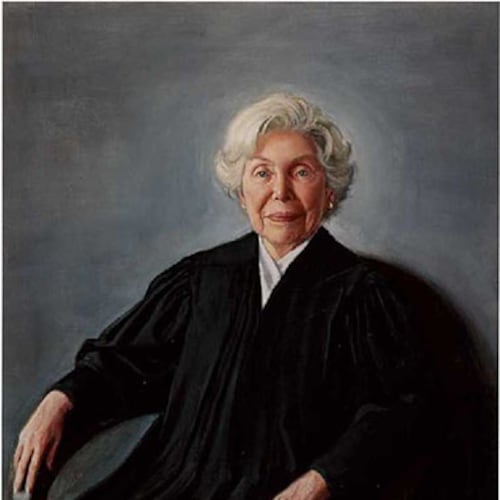The ability of anyone to walk in and observe what’s going on inside a courtroom has long been held to be a hallmark of a free society and a way to maintain the integrity and fairness of the justice system.
In past years, however, so many Georgia judges blocked access to their courtrooms the state’s
Credit: Bill Rankin
Credit: Bill Rankin
judicial watchdog agency became inundated with complaints. Last year, it issued an opinion that told the state's judges they may close a courtroom only on a case-by-case basis and only after making a specific finding on the need to do so.
On Monday, the Georgia Supreme Court will hear arguments as to whether judges should follow that blanket rule. The court is considering the case because a number of judges — specifically, the Council of State Court Judges — are complaining about it.
From the state court judges council's brief:
"The opinion left many judges feeling uncertain about how its broad pronouncements squared with judicial discretion to maintain decorum and traditional practices, such as preventing entry to and exit from the courtroom during a charge to the jury. ... The ramifications of the opinion's ambiguities are magnified since the consequence of misinterpretation could lead to judicial discipline."
From the Judicial Qualifications Commission's brief:
"The council's arguments concerning 'partial closure' or 'delayed admission' ignore the fact that (the opinion) acknowledges the right of trial judges to control their courtrooms, but merely demands that standards be followed when such closure prevents access in a way that meaningfully infringes courtroom access rights established under the First Amendment and Georgia law."
About the Author
The Latest
Featured



